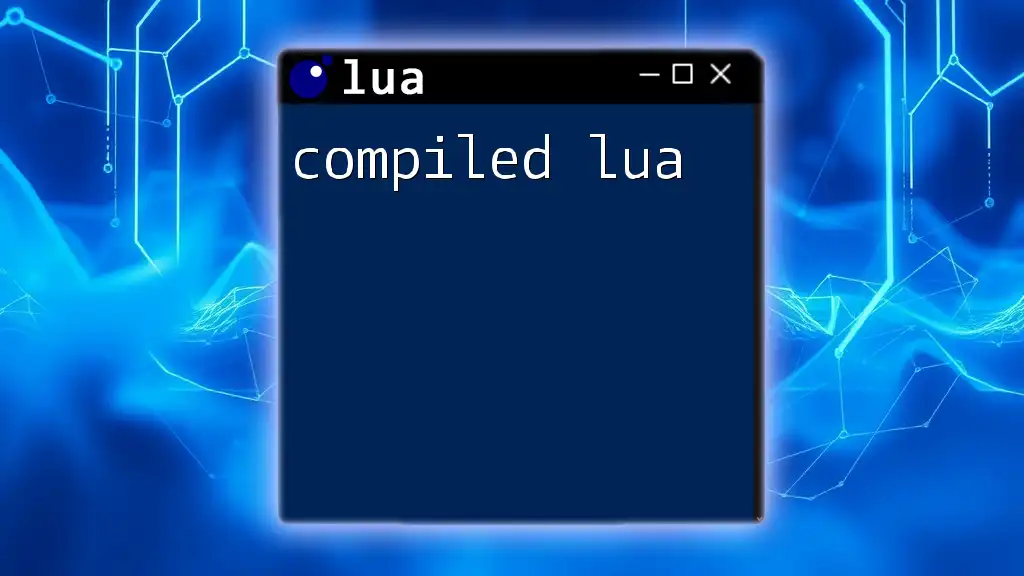Nginx can be extended with Lua scripting to enhance web server capabilities, enabling dynamic content generation and efficient handling of requests.
local ngx = require "ngx"
function handler()
ngx.say("Hello, world!")
end
handler()
What is Nginx?
Overview of Nginx
Nginx is an open-source web server renowned for its high performance and scalability. It’s utilized not just as a traditional web server but also as a reverse proxy and load balancer. Its asynchronous architecture allows it to handle multiple connections simultaneously, making it a favorite among developers looking to optimize their web applications.
The Role of Nginx in Web Development
In the realm of web development, Nginx serves to efficiently deliver both static and dynamic content to users. Its capabilities extend beyond just serving files; it can also balance traffic across several backend servers, ensuring reliability and improved response times. This versatility makes Nginx a crucial component in many commercial and enterprise-level applications.
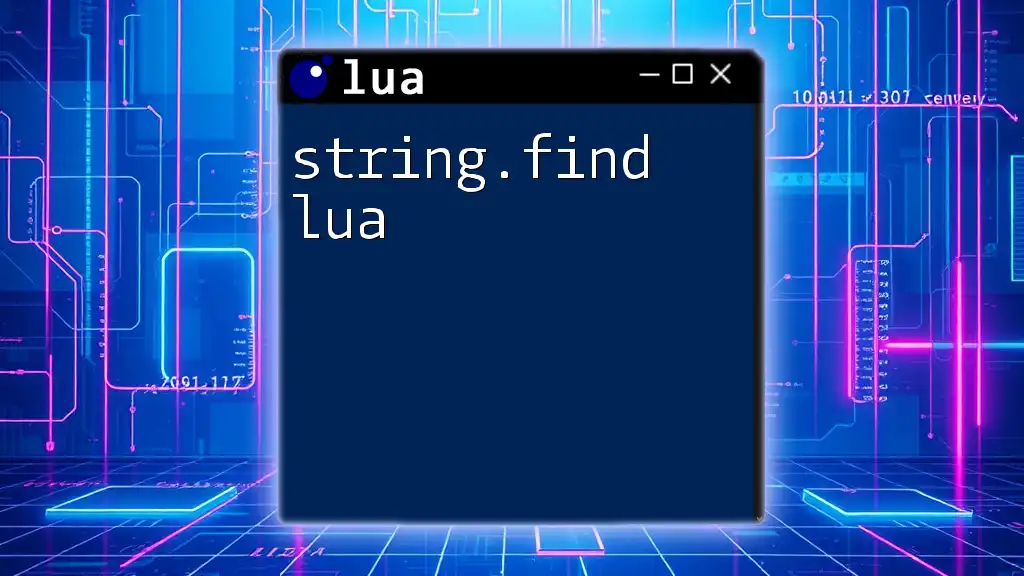
What is Lua?
Overview of Lua
Lua is a lightweight, high-level scripting language that is both fast and easy to learn. Its resilience and flexibility make it an excellent choice for embedding in various applications. Lua's key features include dynamic typing, automatic memory management, and powerful data description constructs, which allow developers to write efficient scripts with minimal overhead.
Benefits of Using Lua with Nginx
Integrating Lua with Nginx opens up a realm of customizability and flexibility for web applications. With Lua, developers can create dynamic configurations and handle HTTP requests intelligently. The biggest advantages of using Lua in this context include enhanced performance and resource efficiency, making it ideal for applications requiring real-time data processing or complex request handling.
Use cases for Nginx and Lua include:
- Generating dynamic content on-the-fly
- Managing session states
- Handling API requests efficiently
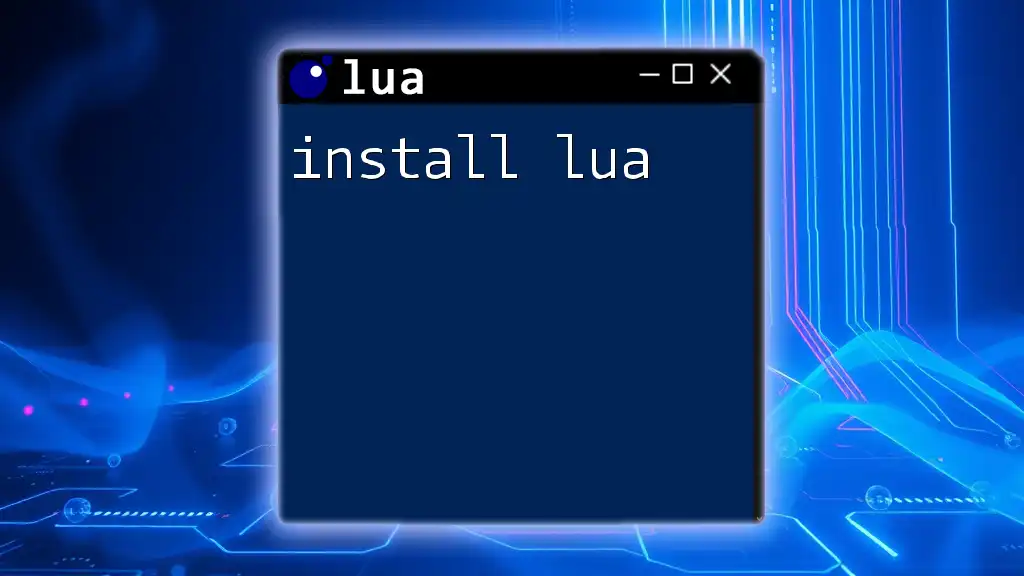
Getting Started with Nginx and Lua
Installing Nginx with Lua Module
To use Lua with Nginx, you’ll need to install the Nginx server along with the Lua module. Ensure you meet the prerequisites for your operating system.
You can install the necessary components using the following command:
sudo apt-get install nginx-extras
Basic Configuration of Nginx with Lua
Nginx configuration files are typically located in `/etc/nginx`. You can modify the `nginx.conf` or your site-specific configuration file to include Lua functionality.
To configure a basic Lua block, you can use the following syntax:
location /lua {
default_type 'text/plain';
content_by_lua_block {
ngx.say("Hello, Lua with Nginx!")
}
}
This configuration specifies that when a request is made to `/lua`, it will respond with a simple "Hello, Lua with Nginx!" message, demonstrating how easily you can embed Lua scripts within Nginx.
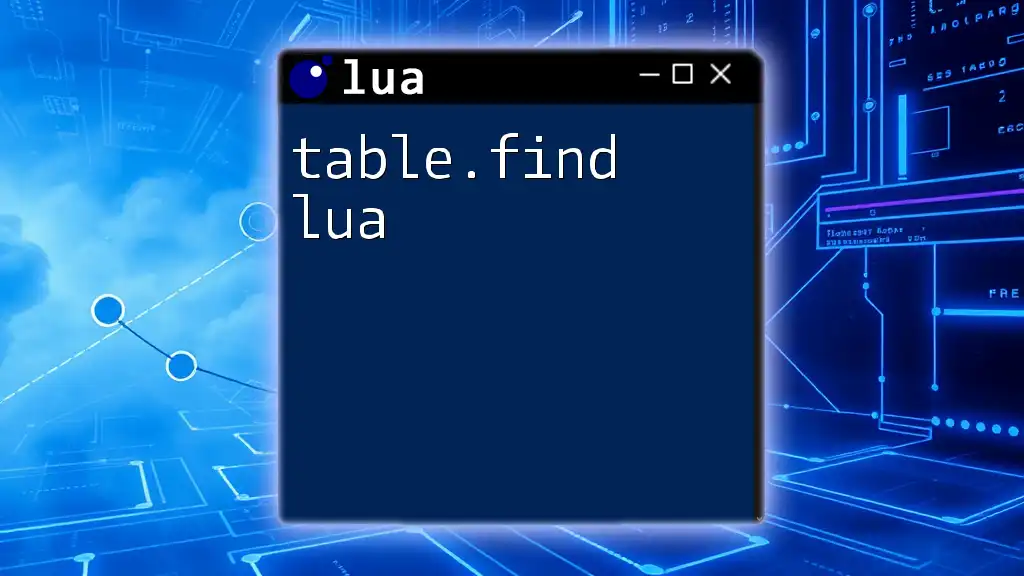
Writing Lua Scripts for Nginx
Lua Basics
When starting with Lua, it’s essential to understand its syntax and data types. Lua supports various data types such as numbers, strings, tables, and functions, giving it a unique edge in handling data operations.
Following constructs can help in writing clean and efficient Lua scripts:
- Variables: Used for storing data
- Loops: Such as `for`, `while`, and `repeat`
- Functions: To encapsulate reusable logic
Integrating Lua with Nginx
Nginx allows the use of the `ngx` library for streamlined web tasks. This library provides numerous functions to interact with request and response objects.
Example 1: Simple Hello World
A fundamental Lua script executed through Nginx might look like this:
ngx.say("Hello, World from Lua within Nginx!")
This script is direct and serves as an excellent introduction to the integration of Lua with Nginx.
Example 2: Handling Query Parameters
You can expand your script’s capabilities by accessing and manipulating query parameters. For instance, the following script retrieves and uses a user's name from the URL:
local args = ngx.req.get_uri_args()
local name = args["name"] or "Guest"
ngx.say("Hello, " .. name)
If a user accesses the URL `/lua?name=Alice`, they will receive "Hello, Alice", showcasing how easy it is to create dynamic responses based on user input.

Advanced Lua Features and Techniques
Handling JSON Data
In modern web applications, handling JSON data is crucial. Lua can manage JSON using libraries like `cjson`. Below is how you could use it to parse incoming JSON requests, enabling you to work seamlessly with structured data.
Managing Sessions
Creating session management in an Nginx environment using Lua can significantly improve user interaction. For instance, you can utilize the `resty.session` library for easy session handling:
local session = require "resty.session"
local s = session.open()
s.data.username = "test_user"
s:save()
This snippet initializes a session, sets a username, and saves it. You'll have effective session management in your application with just a few lines of code.
Error Handling in Lua Scripts
Error handling is an essential aspect of any scripting environment. In Lua, you can implement error management using the `pcall` function to catch errors and handle them gracefully. This involves wrapping function calls in `pcall` to prevent your application from crashing due to runtime errors.
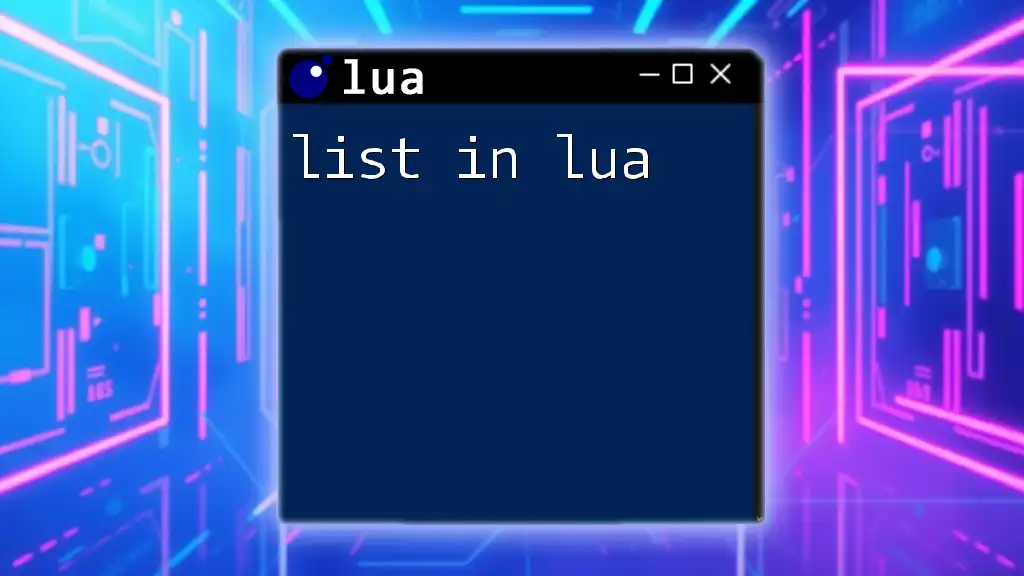
Best Practices for Using Lua with Nginx
Performance Optimization
When working with Lua in Nginx, it’s crucial to optimize your scripts for performance. Strategies include:
- Minimizing the number of Lua function calls
- Caching frequently-used results
- Reducing memory overhead where possible
Security Considerations
As with any web technology, security is paramount. When scripting in Lua for Nginx, ensure that you:
- Sanitize all user inputs to prevent injection attacks
- Regularly update libraries and modules to patch vulnerabilities
- Use proper error handling to avoid exposing sensitive information

Troubleshooting Common Issues
Debugging Lua Scripts
Errors in Lua scripts can derail your application. Utilize the logging capabilities of Nginx to troubleshoot effectively. The following command can log error messages:
ngx.log(ngx.ERR, "An error occurred!")
This line can be placed where you suspect failure, providing context in the error log for easier diagnosis.
Common Configuration Errors
Several common mistakes can occur when configuring Nginx with Lua, including:
- Misplaced Lua code blocks in the configuration
- Incorrect permissions on script files
- Typos in function calls or variable names

Conclusion
Combining Nginx and Lua creates a powerful toolkit for developing flexible and high-performing web applications. By leveraging the strengths of both technologies, developers can build custom solutions tailored to user needs. As you explore more advanced features and functionalities, don't hesitate to experiment with different configurations and Lua capabilities to enhance your web applications further.

Additional Resources
For more in-depth knowledge, refer to the official documentation for both Nginx and Lua, and consider pursuing recommended literature or online courses to deepen your understanding and proficiency in using these technologies together.

Call to Action
Join us in embarking on a learning journey where you can master Lua scripting and elevate your Nginx configurations. Expand your skills in developing robust web applications today!
















